Published more than 2,000 articles on WoS/Scopus system
On March 27, Vietnam National University, Hanoi (VNU) organized the first dialogue program on science , technology and innovation policy in 2025.
This is a forum to share and update information on science and technology (S&T) policies of VNU and related ministries and branches; at the same time, to remove difficulties and obstacles in the process of policy implementation and propose solutions and recommendations.
Ms. Tran Thi Thanh Tu - Head of the Department of Science & Innovation (VNU) - said that in the past year, VNU published more than 2,000 articles on the WoS/Scopus system, an increase of 16% compared to 2023, of which 1,267 articles were in groups Q1 and Q2, accounting for 70% of the total number of international articles.
Some units have seen rapid growth in international publications, such as the International School (273 articles), rising to third place after the University of Natural Sciences (582 articles) and the University of Technology (332 articles). Units in the Social Sciences and Humanities sector are also keeping up with the general trend. In 2024, 69 applications for patents and utility solutions were accepted.
 |
Hanoi National University leadership dialogues on science, technology and innovation policies with scientists |
The financial support policy for outstanding scientists of VNU has attracted 50 staff with 208 outstanding works, including 144 articles (2 articles in Top 1%, 19 articles in Top 5%, 64 articles in Q1, 59 articles in Q2) and 64 intellectual property applications.
VNU has 45 strong research groups, including 28 basic research groups, 15 applied research groups and 2 groups oriented towards commercialization and startups. These groups meet the criteria equivalent to strong State-level research groups, aiming at key science and technology products, bearing the VNU brand.
Spend 100 billion VND
In 2025, VNU plans to invest 100 billion VND in priority research directions such as: AI & IoT, semiconductor technology, agricultural biology - medicine, high-tech agriculture, environmental technology, chemistry, advanced materials, energy and quantum; develop 5 new research institutes including: Institute of Artificial Intelligence, Institute of Semiconductor Technology, Institute of Stem Cells, Institute of Environmental Technology and Institute of Quantum Research, aiming to become excellent research centers.
VNU is also diversifying investment capital sources and upgrading infrastructure with a total area of 22.9 hectares in the interdisciplinary research area, aiming to form a high-tech research complex, serving the development of science and technology products with high applicability and commercialization.
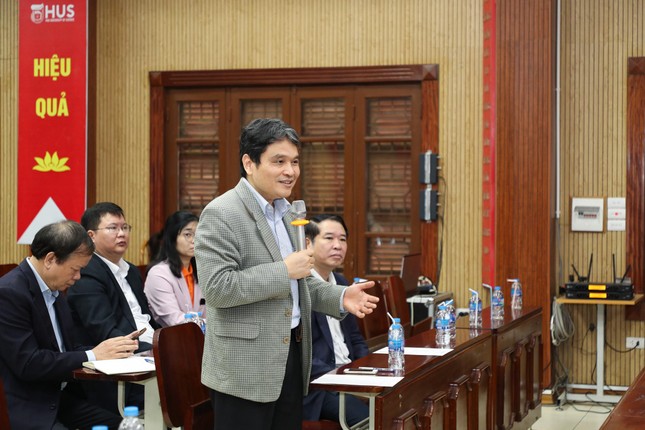 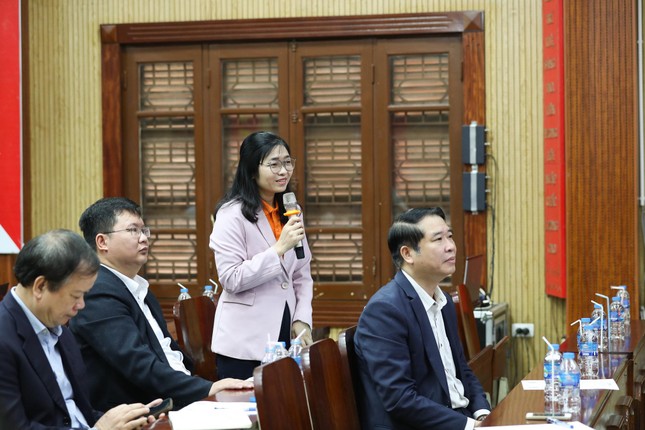 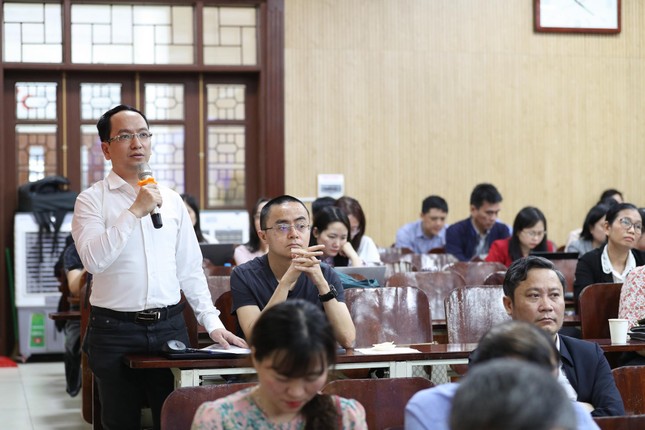 |
Delegates discussed solutions to innovate and improve the quality of research and training at VNU. |
Scientists focused on discussing solutions to innovate and improve the quality of research and training at VNU, emphasizing the role of basic science, artificial intelligence (AI) and digital transformation.
Associate Professor Dr. Tran Quoc Binh - Vice Rector of the University of Natural Sciences - proposed to proactively build a separate mechanism for basic science, integrating the advantages of VNU and making recommendations to the Ministry of Science and Technology.
Regarding applied research, he emphasized the need to invest synchronously in workshops, attract experienced engineers and link with businesses to realize scientists’ ideas. He also suggested a research direction on nuclear energy - a field with great potential in Vietnam.
Associate Professor, Dr. Vu Thi Thom, University of Medicine and Pharmacy, VNU, shared the current difficulties in scientific research due to limited resources, inadequate financial mechanisms and lack of connection with practice. She said that many topics stem from the personal passion and expertise of scientists, but there are still studies with weak practical applicability.
Ms. Thom also pointed out the obstacles in the financial mechanism that affect the progress of research and product application and proposed the need to adjust policies more flexibly to create conditions for the research team and lecturers to develop their expertise in a sustainable way, promoting research linked to life and social needs.
Scientists discussed many key issues related to scientific research development, technology transfer, financial mechanisms and cooperation with enterprises at VNU. Resolution 57-NQ/TW was considered an important step forward with the potential to expand resources and a more flexible mechanism for research activities.
However, delegates said that it is necessary to expand the policy of inviting international experts to participate in building strategies and scientific councils, instead of just sending young scientists abroad.
Scientists recommend the need to build a stable financial mechanism to create trust and conditions for long-term research planning. Attracting good scientists is still a problem due to limited resources, while current tuition fees are not enough to ensure high-quality training and hiring international experts.
On this occasion, VNU launched the Executive Board of the Scientists Club and the Science, Technology and Innovation website.
Source: https://tienphong.vn/dai-hoc-quoc-gia-ha-noi-du-kien-chi-100-ty-dong-cho-nghien-cuu-khoa-hoc-post1728800.tpo








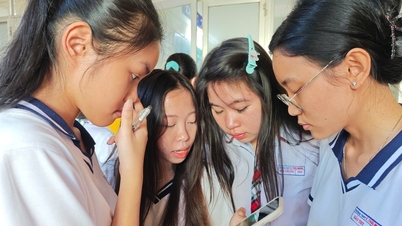



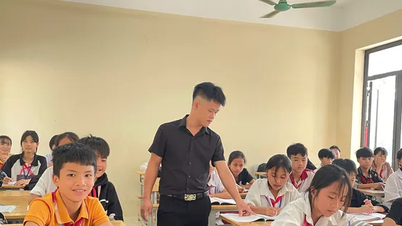
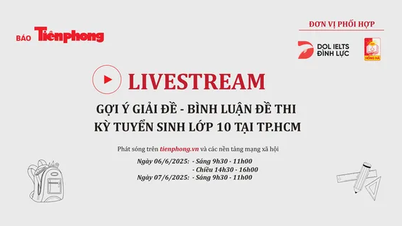
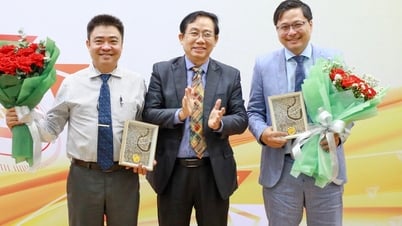






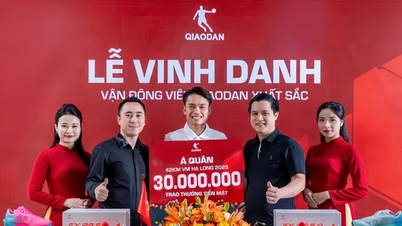
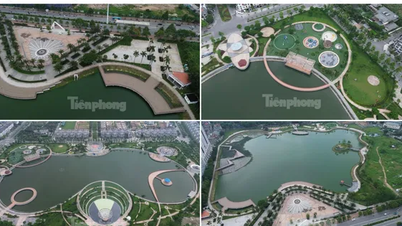













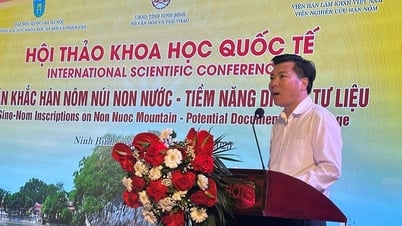



















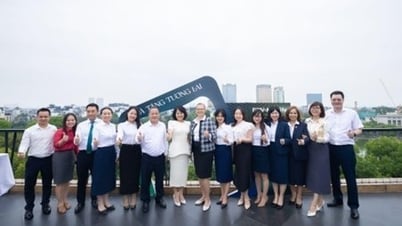
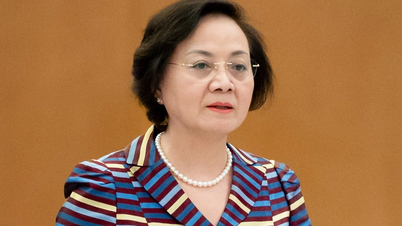
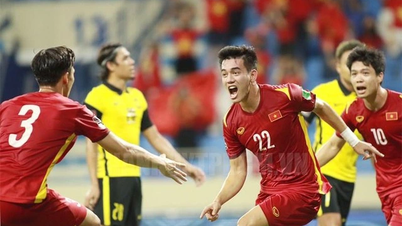
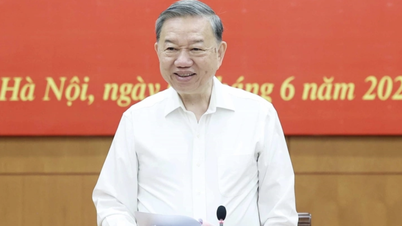











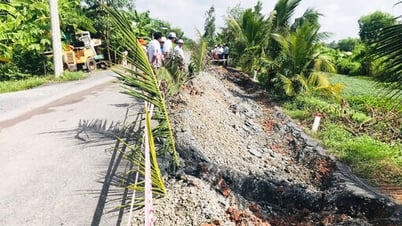

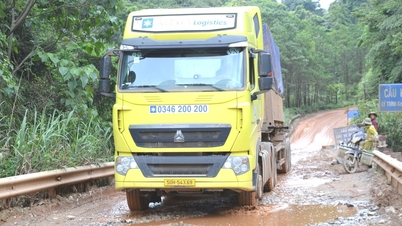

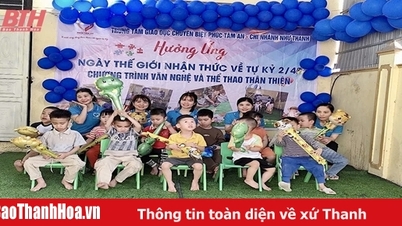

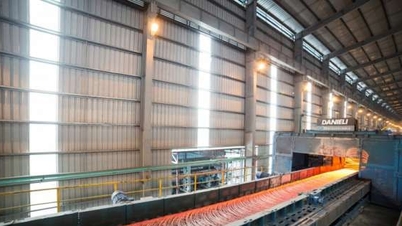



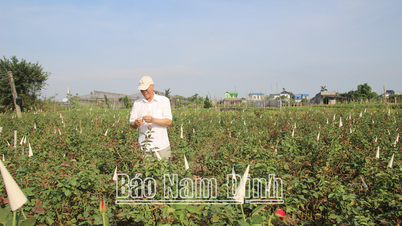











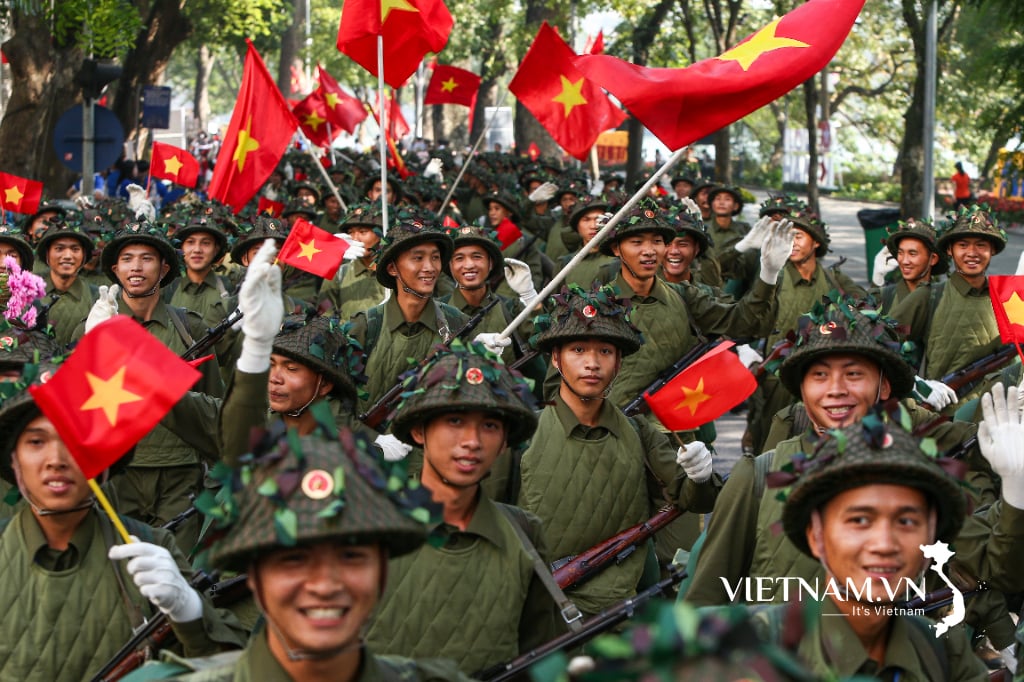
Comment (0)